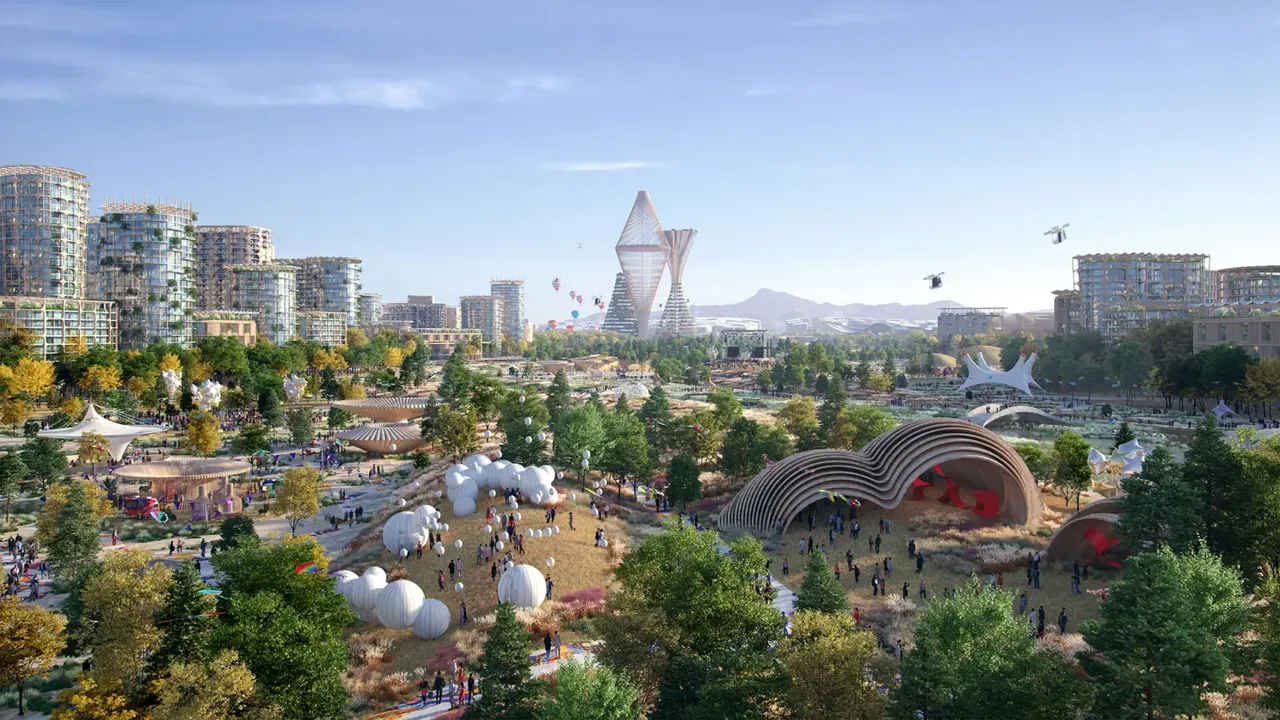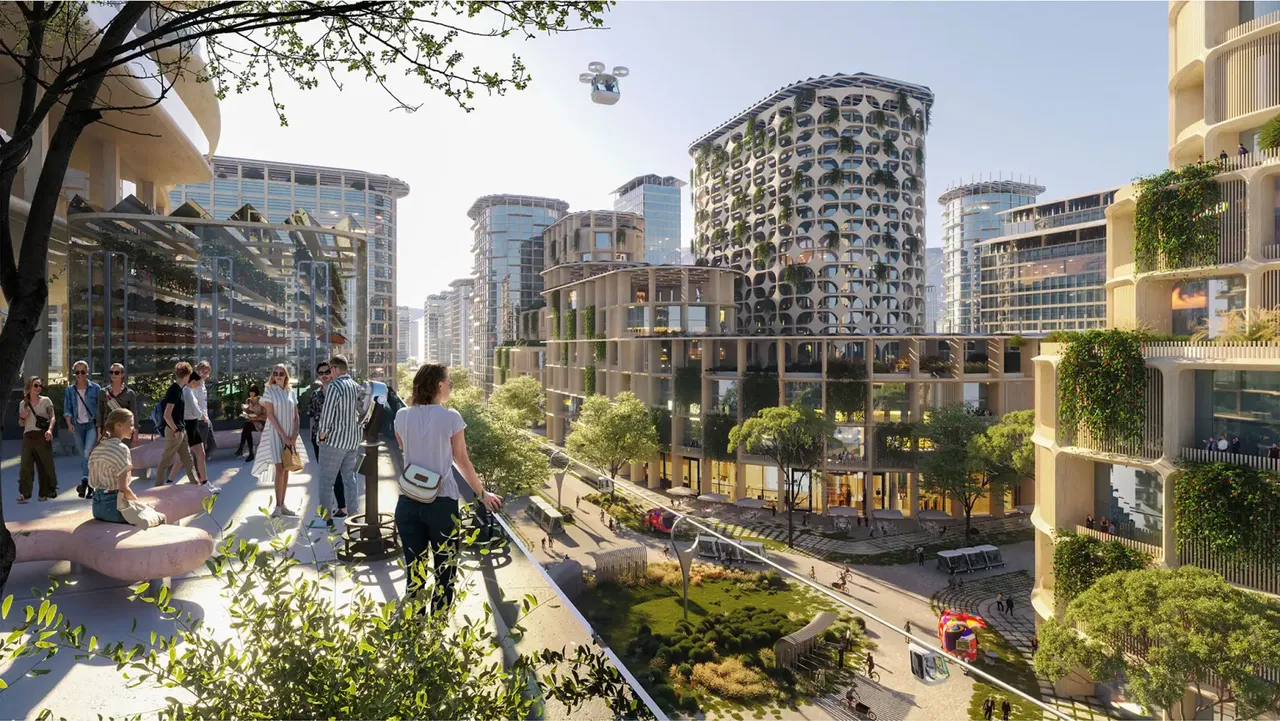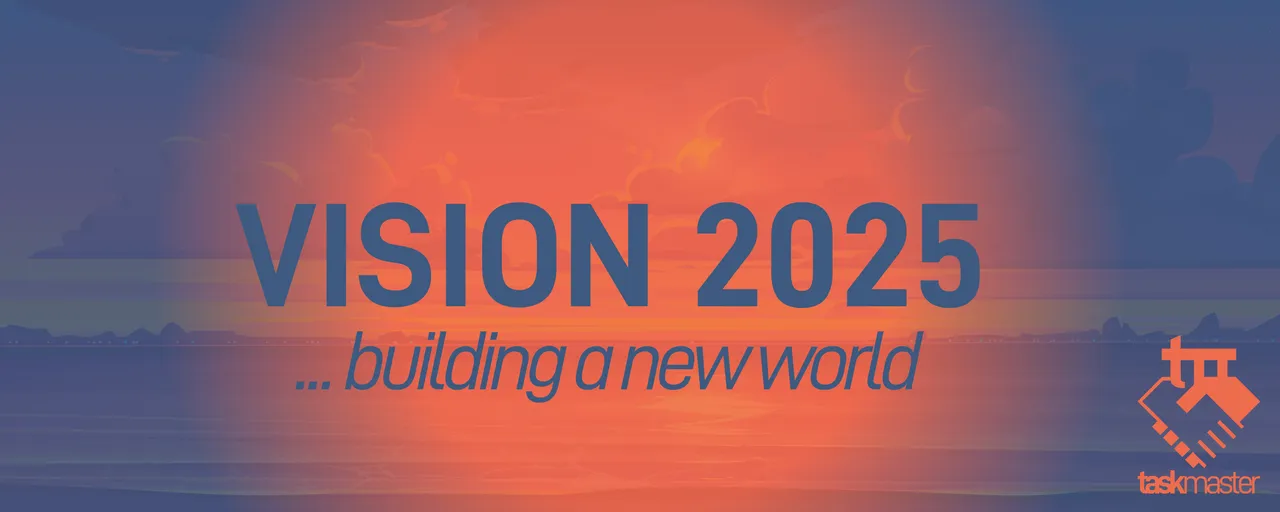We see these renderings periodically.
Have you ever noticed how the cities of the future never seem to come about. Instead, we are left with the likes of New York, London, and Tokyo, cities that house tens of millions of people. They also have infrastructure that dates back a century.
For all our technological progress, we still seem to be mired in the same urban metropolis. There are no Jetsons or cities of the future as depicted in Sci-Fi.
That might change is some of the billionaires in the world have their way. Periodically, some come up with the idea of building their own city from scratch. How come this never seems to get past the planning stage? I guess that is a discussion for another day.
Regardless, now the founder of Jet.com has his idea.
Welcome to Telosa.

It is amazing how the people who propose these ideas always seem to come from a morally superior point of view. Maybe that is why they never get anywhere. When you live in the realm of theory, reality can be a total bitch.
Telosa is the vision of Marc Lore. He believes he is on to the path to remaking society in a much better image. This city will be the crown jewel for all who are involved.
“We’re not just building a new city — this is a new model for society,” said Lore at a Telosa town hall meeting in July, adding that Telosa will also be “equitable” to all.
Sounds wonderful. Where do I sign up? Do I need to bring any money? Since it is equitable for all, I presume the 50K units will be affordable to all. Or maybe not.
Nevertheless, he is going to remake society. After all, equitism is the solution.

What is that you ask? It is:
That said, he added it will be governed by “equitism,” which Axios notes appears to be a mix of democracy, capitalism and socialism.
This is going to be built in the desert, land that doesn't have much utility at the moment.
For Lore, Telosa will encompass 36 districts across a swath of Nevada, Arizona or Utah.
It will be home to 50,000 “diverse” people by 2030. Everything they need will be located within a short walk — though, should vehicles be needed, they’ll be electric and autonomous — and every building will be green-minded with rooftop panels creating renewable energy.
If we are going to dream about utopia, might as well go all in.
Of course, with only 50,000 residents, how are they going to ensure diversity? How it is equitable for all?
The challenge with all these visions is they lack one thing: evolution.
When trying to create a model to build from scratch, the result is centralized planning. While this can work for communities, they are usually smaller in scale and evolve over time. Even planned housing communities take decades to evolve and that is using traditional methods of construction, utilities, and selling of the properties.
As the article linked shows, this is similar to the mirrored skyscraper proposed in Saudi Arabia. Another visionary project that is mired in dispute.
How come we never seem to arrive at the "city of the future"? The reason is really simple: most technology is evolutionary in nature. To radically overhaul a city means to incorporate tech from the ground up. This, however, poses a number of problems, starting with government control and oversight.
We already see the surveillance state growing by leaps and bounds. What is continually proposed takes that to an entirely new level.
Also, changes have to take place as people are living. To build something in the middle of the desert is wonderful. However, it runs into the challenge of being obsolete by the time if is fully populated.
After all, if this was going to hit the 2030 deadline, which it won't, who knows what type of technology we will be dealing with by then.
Yet, here we have another proposal for a major city housing tens of thousands of people. Perhaps it might be best with the idea of building a couple subdivisions with some commercial real estate and house 3,000-4,000 people. Something like that might be more feasible.
Of course, then it wouldn't play to the egos of billionaires who believe they can morally remake society how they see fit.
If you found this article informative, please give an upvote and rehive.

gif by @doze

logo by @st8z